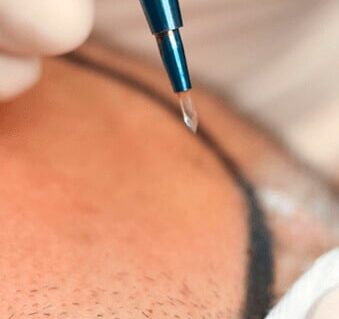Hair Transplantation
DHI Hair Transplant

HAIR TRANSPLANTATION
DHI Hair Transplant
The DHI Hair Transplantation is marketed as being a unique technique, but in reality it is just a name created in the marketing field. It can be seen as narrow and traditional FUE hair transplantation. This procedure is based on the FUE process and has become popular as a new hair transplantation technique.
Factors Affecting The Success Of DHI Hair Transplant
- DHI hair transplantation should be performed by a qualified and experienced team.
- In the DHI hair transplant process, the Choi pencils are of low quality in terms of sharpness & length
- The person performing the transplant needs to consider the proper direction and angle of growth for the clonal segments being implanted.
- Grafts should be placed in the right size Choi pens to avoid injuring the hair follicle.
Advantages Of DHI Hair Transplant
- It helps to prevent the retrieved grafts from being stored out in the open for too long. This helps to increase graft survival and ultimately speed up transplantation.
- The absence of defined incisions and open channels greatly minimizes the rate of bleeding when compared to other procedures.
- Due to the lack of incision marks, tissue healing is less likely to form a crust.
- DHI hair transplantation causes less damage to the hair follicles in that area, so that it can be transplanted there.